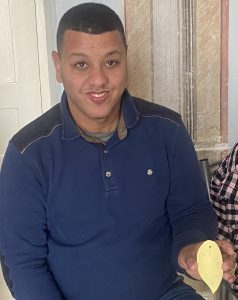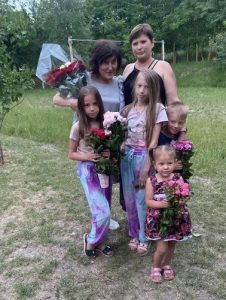Children attend classes in subway station that was retrofitted into a school in Kharkiv, Ukraine. To increase the number of schools, the Lutheran World Federation, a partner of Lutheran Disaster Response, converted air raid shelters into schools.
As war rages in the Holy Land and Ukraine, Lutheran Disaster Response (LDR) continues to accompany the ELCA’s companions in their humanitarian response.
With the humanitarian crisis deepening in the Holy Land, LDR works with the Evangelical Lutheran Church in Jordan and the Holy Land, Augusta Victoria Hospital and L’Arche Bethlehem. These partners provide shelter, food and water, clothing and household supplies; medical supplies for hospitals and clinics; mental health support and trauma-healing interventions; education assistance; and food and livelihood support for people living with intellectual disabilities.

For Haitham, his participation in the L’Arche Bethlehem community means critical protection.
Haitham (last names withheld in this article) lives in the West Bank’s Dheisheh refugee camp, where life is far from ideal. The overcrowded camp is frequently the scene of Israeli raids and incursions. Haitham’s intellectual disability isn’t apparent at first glance, and he may not understand or respond well to commands when he is stopped by soldiers. His mother worries daily that he will be shot by soldiers.
For Haitham, his participation in the L’Arche Bethlehem community means critical protection. “If the community did not exist in his life, he would spend his time wandering in the streets of the camp, putting himself at many risks in the process,” his mother said.
The L’Arche community in the West Bank, known as Ma’an lil-Hayat or “Together for Life” in Arabic, has worked in the region for over a decade to serve the needs of people with intellectual and developmental disabilities and their families. It brings people together to engage in creative textile-arts activities and to share daily life together in a workshop environment. With two facilities, these workshops and meals are essential sources of support, connection and community.
But the war often disrupts the regular schedules and activities that are crucial to people with intellectual disabilities. With restricted movement and security checks, it can take hours to commute to L’Arche workshops on public transportation. LDR support means participants and staff can reach workshops safely—and that staff can continue to provide care in the most difficult circumstances.
Against the high tensions of war, Haitham’s mother sees L’Arche as a sanctuary for her son and others like him to live safely and with dignity. “He is surrounded by people that love and care about him, people that make him feel like a decent human being,” she said.
Help for children and families
War has produced a mass refugee crisis for Ukraine. LDR supports partners in Ukraine, Hungary, Poland, Romania, Slovakia, Moldova, Lithuania and the Czech Republic, as well as ecumenical companions like the Lutheran World Federation (LWF) and Church World Service (CWS), to assist refugees with short and longer-term housing, schooling and community.
CWS, for example, works with thousands of Ukrainian refugees, primarily women and children, to help them acclimate to their host communities. Its programs include education for children, livelihood training, medical support and a center for victims of gender-based violence.
In May 2022, Natalia fled Ukraine with her five children, one of whom was pregnant. Her husband, son and son-in-law stayed behind and joined the army. “Since then, my life has been torn in two,” she said.

Natalia and her family relocated to Moldovia in 2022.
Natalia and her children ended up in Moldova, which has welcomed as many refugees as any of Ukraine’s neighbors relative to population size—all without the same level of resources that European Union nations have had in welcoming Ukrainians, according to CWS.
People who have fled to Moldova face numerous challenges in rapidly establishing new lives, for an unknown period. They must try to secure safe housing, sufficient nutrition, health care, stable education and employment.
CWS notes that women and children, who make up over 80% of the refugees in Moldova, face heightened protection risks and vulnerabilities that jeopardize safety and well-being. Disruptions in social networks, increasing tensions between host and refugee communities, and the inability to cover basic needs make women and children more susceptible to gender-based violence, trafficking, and sexual exploitation and abuse. During the winter months, these issues are often exacerbated by poor mental health, social isolation, winterization costs and an energy crisis.
Natalia’s family found safety in a hotel-turned-refugee shelter. She enrolled her children in the CWS’ Anastasis Educational Center, where they receive an education and psychosocial support, participate in activities and play with other refugee children. Natalia keeps busy by caring for her children who aren’t in school yet, participating in the center’s weekend and evening activities, and volunteering at a distribution center for refugees.
In October 2022, Natalia’s daughter gave birth to a healthy baby girl, thanks to LDR support that gave her access to the necessary medical care.
For the LWF, projects in Ukraine include shelter rehabilitation (renovating apartments damaged by the war), humanitarian aid to internally displaced people, and running 14 “heating points,” where people receive hot meals and can rest and charge devices when there is no electricity or heating.
In Kharkiv, Ukraine, there are five metro schools in subway stations that can only accommodate a small number of students. To help, the LWF transformed nuclear shelters into underground schools that opened in time for fall classes.
“Education has always played an important role for us in the Lutheran communion,” said LWF General Secretary Anne Burghardt after a visit to Kharkiv last May. “Giving the children who live under harsh conditions in Kharkiv the possibility to go back to school in person, to offer them a possibility not to forget what it is like to meet other children in the classroom, is like bringing a piece of peaceful times back to their lives.”
Information for this article was supplied by LDR and LWF. To help with LDR’s response to these and other disasters, visit elca.org/ldr.
Read more about:

